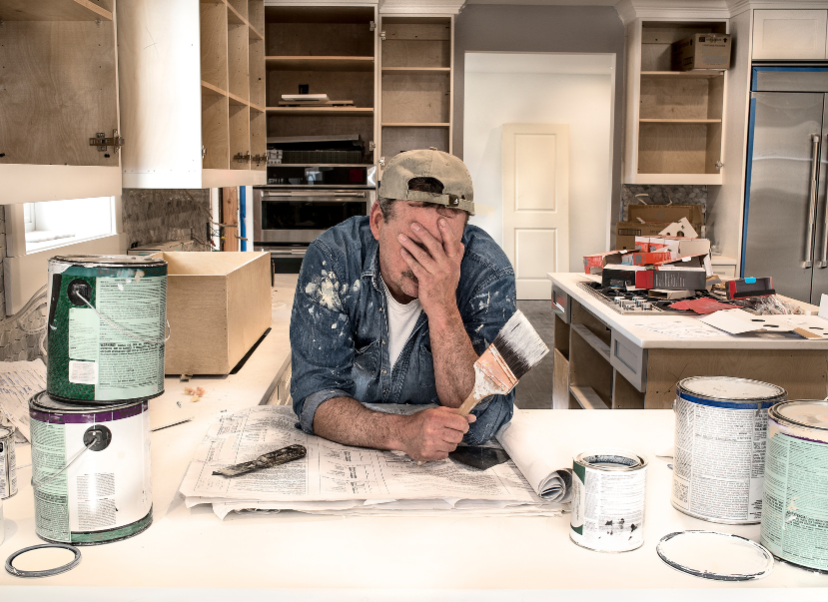If you’re searching for a home in the Boynton Beach area—or nearby towns like Delray Beach, Lake Worth, or Boca Raton—you’ve probably asked yourself: should I buy a fixer-upper or a newer home?
With decades of experience in both construction and real estate, I’ve seen the benefits and challenges of each option. The best choice depends on your goals, budget, and lifestyle.

My Background: Why I Weigh Both Sides
Since 1987, I’ve worked hands-on in construction and remodeling, building new homes, completing full remodels, and taking on my own fixer-uppers. That experience taught me the true costs—both financial and emotional—of renovations. Today, as your Realtor, I bring that knowledge into every transaction so my clients can make decisions with confidence.
What “New” and “Fixer-Upper” Mean in Palm Beach County
New or newer homes: This may refer to new construction, recently built communities, or homes that have undergone major updates, such as new roofs, plumbing, or HVAC systems. These homes usually come at a higher price but require fewer immediate repairs.
Fixer-uppers: Homes that need work, ranging from cosmetic updates like flooring or cabinets to bigger repairs like electrical, plumbing, or roof replacement. Many are older properties that offer character but may also come with hidden costs.
Pros and Cons of a Fixer-Upper
Pros
Lower purchase price
Potential to build equity through improvements
Freedom to customize finishes and layout
Tax benefits may apply in some situations
Cons
Renovation costs can add up quickly
Projects require time, patience, and organization
Older systems (plumbing, electrical, roof) may need replacement
Possible permitting delays, especially with HOAs or in flood zones
Pros and Cons of Buying New or Move-In Ready
Pros
Fewer surprises with modern systems and warranties
Lower maintenance in the first several years
Faster move-in timeline
More energy-efficient and built to today’s codes
Cons
Higher upfront purchase price
Limited customization once construction is complete
Quality varies depending on the builder
Newer communities often have smaller lots and younger landscaping
Local Factors Around Boynton Beach
Climate: Salt air, humidity, and hurricanes take a toll on homes here. Roofs, AC units, and windows are critical to review, especially in older properties.
HOA and permitting: Renovations may require approval and can be slowed by county permitting.
Resale value: Buyers in Palm Beach County often pay more for modern, low-maintenance homes. But a well-renovated fixer-upper in the right location can be just as strong an investment.
Land value: Location matters. A fixer-upper in a desirable neighborhood may be a smarter choice than a brand-new home farther from the coast.
Construction costs: Florida’s hurricane building codes and material prices can raise renovation costs, so always plan for a cushion in your budget.
What Is the 30% Rule for Renovations?
A common rule of thumb is that renovation costs should not exceed 30% of the home’s value. For example, if you buy a home for $400,000, you wouldn’t want to put more than $120,000 into renovations.
This guideline helps protect your equity and resale potential. Spending far more than this can make it difficult to recover your investment if you need to sell, particularly if neighboring homes don’t support that higher price point.
Think Long-Term: Keep Your Style Timeless
Many home sales happen unexpectedly due to life changes such as job relocations, family needs, or other circumstances. Even if you plan to stay long-term, it’s smart to keep your renovation choices timeless so you don’t limit your future pool of buyers.
Tips to protect resale value:
Choose neutral finishes in kitchens and bathrooms
Use color and personality in paint or décor, which are easy to update
Avoid overly trendy design choices that could feel dated in just a few years
How I Help Buyers Decide
Here’s how I guide clients through this decision:
Inspection and evaluation: My construction background allows me to recognize issues and estimate repair costs accurately.
Comparing options: I help weigh the true cost of buying new versus renovating a fixer-upper.
Trusted contractors: I connect clients with professionals who know local codes and standards.
Negotiation advantage: Understanding the real cost of repairs often strengthens your position when making an offer.
Final Thoughts
There’s no single answer to the question of whether a fixer-upper or new home is better. If you want convenience and minimal maintenance, a newer home is likely the best fit. If you value customization and are willing to put in the time, a fixer-upper in the right location can be a rewarding investment.
If you’d like help evaluating specific properties in Boynton Beach and surrounding areas, I’d be happy to guide you through the process and ensure your decision supports both your lifestyle and long-term goals.
Delray Beach isn’t just a vacation spot—it’s a place people choose to put down roots. From morning coffee on the beach to live music on Atlantic Avenue, this city blends coastal charm with a lively, walkable downtown. It’s no wonder so many people are asking, “Is Delray Beach a good place to live?”Let’s break it down with real-world insight—not just brochure talk.
Lantana’s the kind of place you drive through once and think, I could live here. Nestled between Lake Worth Beach and Boynton Beach, it’s a small coastal town with just the right mix of old Florida charm and everyday convenience. So if you're wondering Should I move to Lantana, Florida?—here’s my take as a local realtor who lives and works right here in Palm Beach County.
If you're like me and thinking ahead about your next chapter, Boynton Beach is one of the top places in South Florida to land. It’s home to some of the most desirable 55+ communities out there—whether you're after a quiet, low-maintenance lifestyle or something more upscale and active.
I spend enough time in the area to tell you this: it’s got a magnetic pull. As a realtor based in South East Florida, Delray Beach is one of those places that comes up in conversations a lot. Whether you’re moving down from the Northeast or trading city life for more sunshine, Delray Beach always ends up on the shortlist—and for good reason.




